

Maintaining High Satisfaction Among Individual Investors Despite Market Fluctuations: Insights from J.D. Power's 2025 Survey
The J.D. Power 2025 Individual Asset Management Customer Satisfaction Survey provides vital insights into how individual investors gauge their experiences during turbulent market conditions. This year, despite considerable shifts in stock prices and uncertainties stemming from international trade policies, overall satisfaction levels among investors have remained remarkably high. As the financial landscape has experienced notable volatility, including a sharp decline in stock prices in August 2024, the impact on asset management experiences has drawn attention. Around 20% of participants reported a decrease in the value of their investments in both mutual funds and stocks, reflecting an increased sensitivity to market fluctuations.
The survey indicates that loyalty, measured through indicators like intent to continue using services and recommend institutions, has remained stable across various platforms, including traditional brokerage firms, major banks, and online brokerages. Notably, online brokerage satisfaction scores have surged by 14 points, demonstrating an upward trend in consumer sentiment. This could suggest that clients are prioritizing significant and reliable services over short-term performance, fostering long-term relationships with trusted financial institutions.
By analyzing the factors contributing to satisfaction, it becomes evident that online brokerages are enhancing their scores significantly. Particularly, areas such as fees and interest rates, alongside the product and service offerings, have shown improvements of over 20 points. This shift can be attributed to many brokerage firms eliminating fees and offering attractive services, which resonate deeply with clients, especially during uncertain times when operational costs directly affect client yields.
Delving deeper into specific areas, the quality and clarity of information available through online portals have been rated highly, contributing to a more engaged user experience. Furthermore, improvements in call center responsiveness, which had suffered due to increased inquiries during last year's NISA implementation, have been rectified in this year’s survey outcome, leading to higher satisfaction scores.
Particularly noteworthy is the data gathered from the August 2024 stock market crash, where investor satisfaction significantly varied based on whether they received communications from their financial institutions. Surveys revealed that investors who received updates via their financial advisors, call centers, or online notifications were much more satisfied than those who did not receive any communication during this tumultuous period. This underscores the critical role of timely, relevant information being shared with clients to alleviate concerns during periods of market volatility.
The quality of the information shared also matters. Investors who rated the information they received as useful exhibited significantly higher satisfaction levels, emphasizing that financial institutions need to understand their clients’ needs and communicate effectively through suitable channels. This proactive engagement is essential in reducing client anxiety and enhancing trustworthiness over time.
The results from the J.D. Power survey outline a competitive landscape in customer satisfaction across various categories. In the Face-to-Face Brokerage category, Nomura Securities claimed the top spot with 608 points, followed by Mitsubishi UFJ Morgan Stanley Securities. In the Major Bank category, Sumitomo Mitsui Trust Bank was recognized as the leader with a score of 602 points. Meanwhile, in the Online Brokerage category, SBI Securities took the lead with an impressive score of 653 points, slightly ahead of Rakuten Securities. Lastly, for Online Banks, au Jibun Bank scored highest with 640 points.
This survey indicates a growing trend where individual investors increasingly value long-term relationships with financial providers that offer stable and reliable services, particularly in times of market chaos. The next steps for financial institutions should focus on capitalizing on this opportunity by enhancing client engagement and communication strategies to foster deeper, more trusting relationships.
In summary, even amidst a turbulent market, the data collected by J.D. Power reveals a favorable outlook for individual investor satisfaction, a strong testament to the sustaining power of trust and relationship in the financial services sector. As we move forward, understanding the complex needs of investors and providing comprehensive, useful information will be key to maintaining and improving satisfaction in the years ahead.

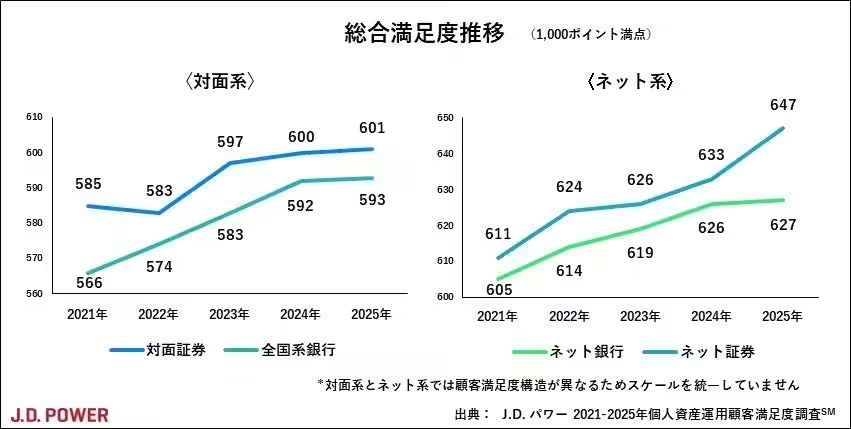

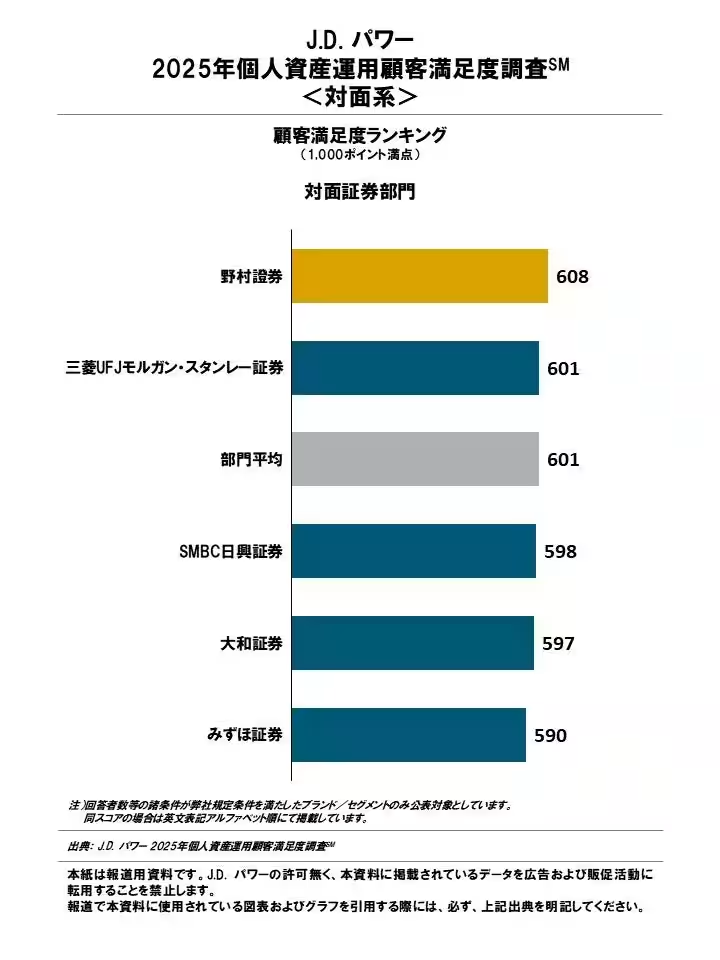
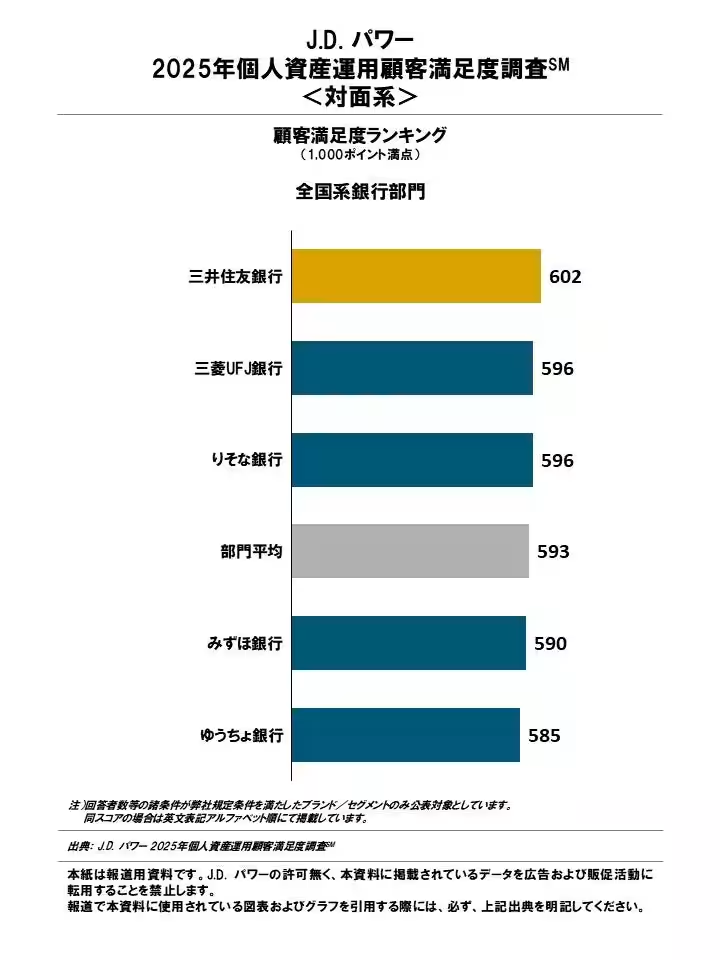
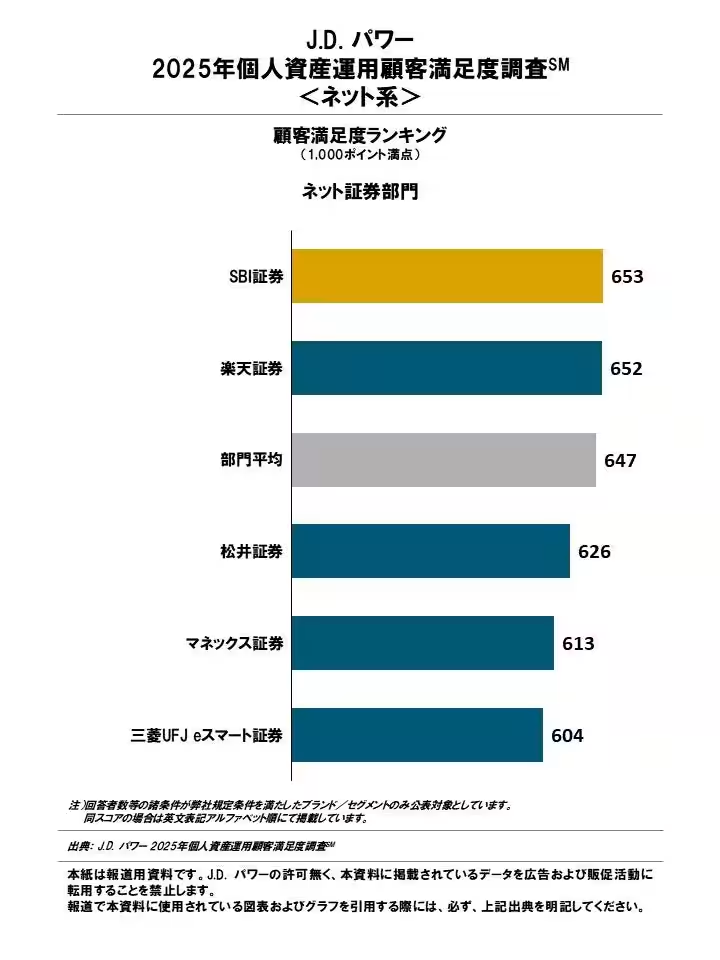
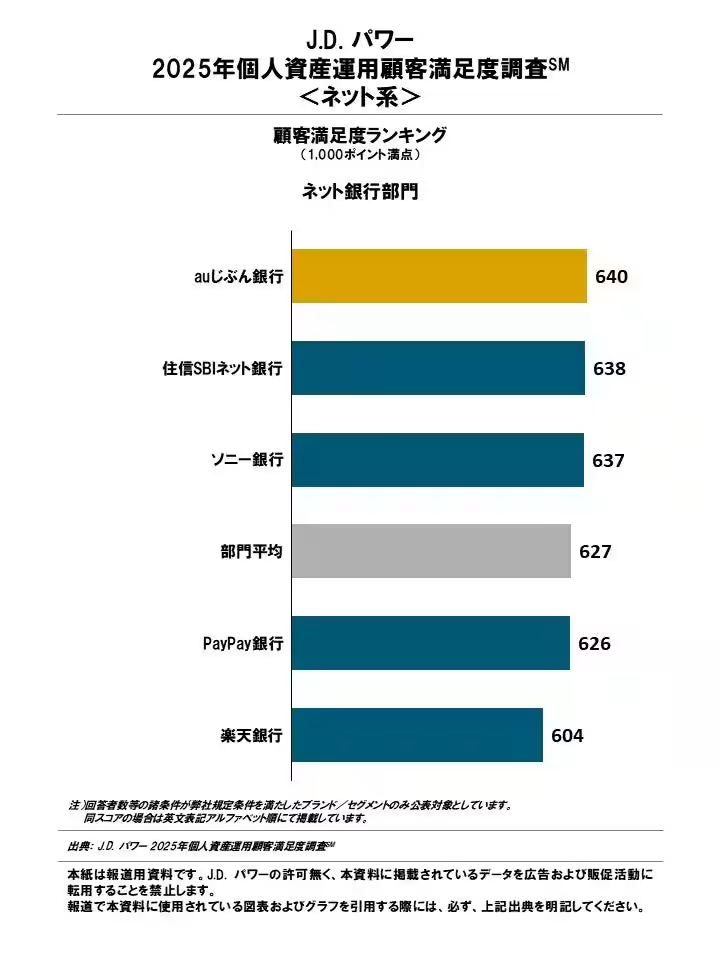



Key Findings and Trends
The survey indicates that loyalty, measured through indicators like intent to continue using services and recommend institutions, has remained stable across various platforms, including traditional brokerage firms, major banks, and online brokerages. Notably, online brokerage satisfaction scores have surged by 14 points, demonstrating an upward trend in consumer sentiment. This could suggest that clients are prioritizing significant and reliable services over short-term performance, fostering long-term relationships with trusted financial institutions.
Online Brokerages Rising Star
By analyzing the factors contributing to satisfaction, it becomes evident that online brokerages are enhancing their scores significantly. Particularly, areas such as fees and interest rates, alongside the product and service offerings, have shown improvements of over 20 points. This shift can be attributed to many brokerage firms eliminating fees and offering attractive services, which resonate deeply with clients, especially during uncertain times when operational costs directly affect client yields.
Delving deeper into specific areas, the quality and clarity of information available through online portals have been rated highly, contributing to a more engaged user experience. Furthermore, improvements in call center responsiveness, which had suffered due to increased inquiries during last year's NISA implementation, have been rectified in this year’s survey outcome, leading to higher satisfaction scores.
The Importance of Proactive Communication
Particularly noteworthy is the data gathered from the August 2024 stock market crash, where investor satisfaction significantly varied based on whether they received communications from their financial institutions. Surveys revealed that investors who received updates via their financial advisors, call centers, or online notifications were much more satisfied than those who did not receive any communication during this tumultuous period. This underscores the critical role of timely, relevant information being shared with clients to alleviate concerns during periods of market volatility.
The quality of the information shared also matters. Investors who rated the information they received as useful exhibited significantly higher satisfaction levels, emphasizing that financial institutions need to understand their clients’ needs and communicate effectively through suitable channels. This proactive engagement is essential in reducing client anxiety and enhancing trustworthiness over time.
Overall Customer Satisfaction Rankings
The results from the J.D. Power survey outline a competitive landscape in customer satisfaction across various categories. In the Face-to-Face Brokerage category, Nomura Securities claimed the top spot with 608 points, followed by Mitsubishi UFJ Morgan Stanley Securities. In the Major Bank category, Sumitomo Mitsui Trust Bank was recognized as the leader with a score of 602 points. Meanwhile, in the Online Brokerage category, SBI Securities took the lead with an impressive score of 653 points, slightly ahead of Rakuten Securities. Lastly, for Online Banks, au Jibun Bank scored highest with 640 points.
This survey indicates a growing trend where individual investors increasingly value long-term relationships with financial providers that offer stable and reliable services, particularly in times of market chaos. The next steps for financial institutions should focus on capitalizing on this opportunity by enhancing client engagement and communication strategies to foster deeper, more trusting relationships.
Conclusion
In summary, even amidst a turbulent market, the data collected by J.D. Power reveals a favorable outlook for individual investor satisfaction, a strong testament to the sustaining power of trust and relationship in the financial services sector. As we move forward, understanding the complex needs of investors and providing comprehensive, useful information will be key to maintaining and improving satisfaction in the years ahead.










Topics Financial Services & Investing)










【About Using Articles】
You can freely use the title and article content by linking to the page where the article is posted.
※ Images cannot be used.
【About Links】
Links are free to use.